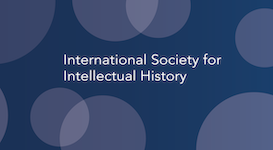 CfP: Early Modern Civil Religion Workshop
CfP: Early Modern Civil Religion Workshop
14 September 2017, Newcastle University
Recent scholarship has reintegrated the religious perspective into how the intellectual culture of the early modern period, particularly in the political sphere, can be understood. This has opened up new avenues of enquiry for those working on the role of scholarship (biblical, patristic, and classical) in intellectual engagement, scholars of philosophy and theology, as well as historians of culture, books, and political thought, consequently providing a much more varied understanding of how ideas were formed and justified. Yet in the midst of these developments, the reality of how the Church-State relationship was envisaged by those writing on politics and religion in this period remains under-explored. The notion of a ‘civil religion’ was a prominent feature of the discourse, but its ambiguity and the contradictions and difficulties involved in its practical realisation has left it as something of a by-stander in the intellectual history of the period. The arguments that were made for civil religion have been used by scholars as evidence for established interpretations of the period, whether that be for the existence of a ‘Radical Enlightenment’, or for the Christian Reformist tendencies of these so-called radicals, or as proof of continuity with existing traditions in republican, patristic, or classical ideologies.
This one-day workshop proposes to examine civil religion in early modernity on its own terms, rather than as a subsect of existing scholarly narratives. It seeks to bring together scholars from different disciplinary spheres in order to encourage reflection on this notion of ‘civil religion,’ and to construct an understanding of its specific contribution to its intellectual and cultural context.
Possible points of discussion include:
- What is ‘early modern civil religion’? Can a clear and unified understanding be established?
- What intellectual arguments were used to justify a ‘civil religion’? How were the counter-arguments constructed?
- How were ancient precedents utilised to create a tangible vision of a ‘civil religion’? How was the historical development of episcopal authority represented in the debate?
- How developed were ideas for how such a religion might work in practice? For example, the selection of priests, their role in the community, and the conduct of religious practice?
- What relationship did the notion of civil religion have with republican ideology as it developed from antiquity to the early modern world?
- Did civil religion have an impact beyond political and religious discourse? How was it represented and used in editorial practices, literature, art, rhetoric, or biographical writing?
Proposals are invited for papers of 10-15 minutes, with abstracts of no more than 300 words, to be submitted by 18th August 2017, to katherine.east@ncl.ac.uk.
For further information please click here.

